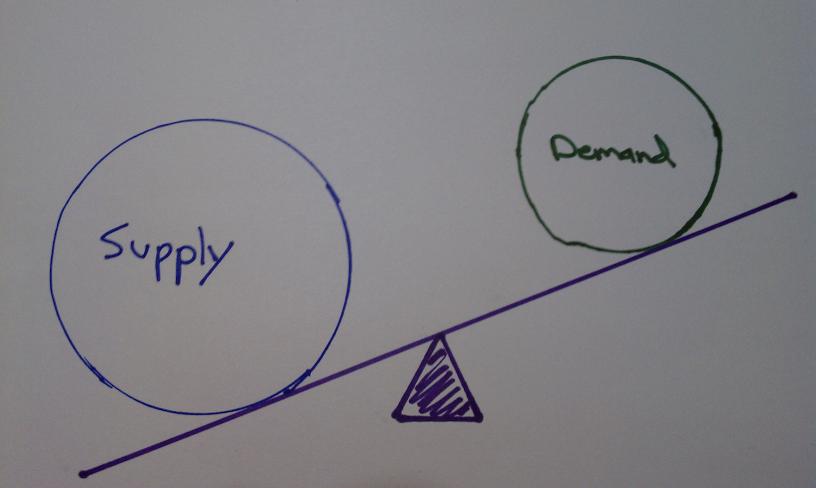
To purchase the entire Summit Lecture Series, Vol. 1 on DVD, go to: summit.org.
In most cultures, especially in the “ uncivilized cultures” the world has known, women were the sexual victims of men. If men wanted sex, they simply took it.
However, the Jewish understanding of things put a context around sex… this context is called marriage. Now, I know this may seem odd by today’s standards, especially when we read in the Old Testament how a wife could be traded for seen cows… but nevertheless, marriage was being protected. Men couldn’t just take it – they had to pay for it. They had to invest something, if they wanted it bad enough. And then the family had a role in deciding whether or not this was going to happen. By contextualizing sex within marriage and family, it was protected.
This was resurrected much later in Britain during the Victorian Era. Once again, women were able to protect their sexuality. And this all just points to simple economic theory, as pointed out by Mark Regnerus.
If you think about it, the foundations of economics are supply and demand. When the supply of any particular thing is rare and the demand is high, the price tag goes up. So, when sex was contextualized in marriage – especially during the Victorian Era – women were able to keep the sexual supply low. Now, men had a high demand for it, and so women were able to set the price tag, and set it high.
“If you want me, you have to give me a ring and you have to go through my dad first.”
It was a pretty expensive proposition… but one that would time and again prove to be worthwhile.
And then the 1960’s came along.
With the 60’s came a couple thinkers: Hugh Hefner, creator of Playboy magazine and disciple of Alfred Kinsey and his sexuality studies; and Helen Gurley Brown, editor-in-chief of Cosmopolitan magazine, the female version of Hugh Hefner. These people, along with the likes of Margaret Mead and Margaret Sanger, proposed that our culture needed women to flood the sexual market with supply because men had screwed up the world, thus we need women to behave more like men.
Like anything else, when the market was flooded with supply, the price tag got cheaper.
One thing these “sexual experts” didn’t see coming was the onslaught of pornography. In 1972, the porn business was an $8 million industry. By 1999, it had grown to an $8 billion industry. Today, over $11 billion are spent annually on pornography. Additionally, child porn is a $3 billion per year industry.
All this culminates into the fact that men can now have their sexual needs met without another person even being in the room with them.
And the “price” of sex becomes incredibly cheap.
But, not only has sex been devalued, but women now have competition. Today, real women have to compete with virtual women. They have to act like virtual women, dress like them… they have to behave as if all they are interested in, all the time, is sex – just like the women on porn videos and websites do.
And, secularly speaking, this has turned into a great situation for men, as Mark Regnerus pointed out. Even though women today tend to be more educated, more driven, achieve higher levels of employment, and are making more money than ever before, men can now basically hang back, do whatever they want, be complete idiots, and still have sex. Why? Because the whole economic dynamics have reversed. Today, sex is cheap, and now women have the demand and men have the supply.
What do men have a supply of that women have a high demand for?
Relational security.
I’m not saying that all women are hungry to get married, but by and large, most women want emotional security. And men are keeping that supply very rare. Women want it, so men say:
“Oh, yeah… I’ll be your boyfriend… but I’m also going to be addicted to porn.”
“I’ll be your boyfriend… but you’ve got to behave like this porn star.”
“I’ll be your boyfriend… but I’m also going to be an adolescent for the rest of my life and play video games while you go to work.”
This cannot be seen as good for women.
There was a set of articles in the Wall Street Journal which asked, “Was the sexual revolution good for women?” Mary Eberstadt answered with a resounding NO, and listed off a ton of reasons why. Another famous author, Ann Patchett, argued the other side, holding that the pill has been good for women and the pill is connected with the sexual revolution, so logically the sexual revolution must have been good for women. Yet, at the end of her essay, Patchett wrote:
“…but, I wish men would stop treating women as sex objects.”
Where did Ann think this came from?
Ideas have consequences.
Now I know this must upset a lot of guys. You’re thinking, “This isn’t right… I don’t want to be ‘that guy’!”
Good. Don’t be that guy. Change the economic dynamic by CHANGING THE ECONOMIC DYNAMIC.
Women can also change the sexual economy by KEEPING SEX RARE.
You see, in this sexual context, it’s not only the obvious ideas that have obvious consequences, but as C.S. Lewis wrote:
“The most dangerous ideas in a society are not the ones that are argued, but the ones that are assumed.”
The ideas that are embedded and underlying in our culture – particularly the ideas about sex, human value, men and about women – they come at us, not typically in print, but through more subversive means. We have to have the ability to be aware of them and understand what these ideas are saying, what they are not saying, and the impact they are having on our lives.
This is why completely understanding ideas is so extremely important!